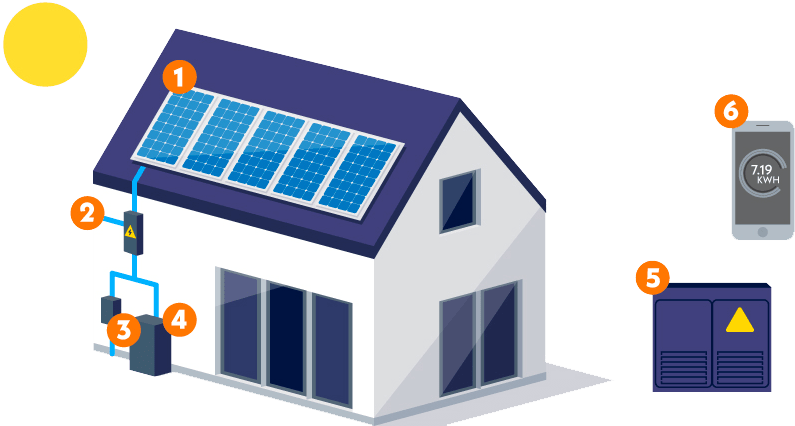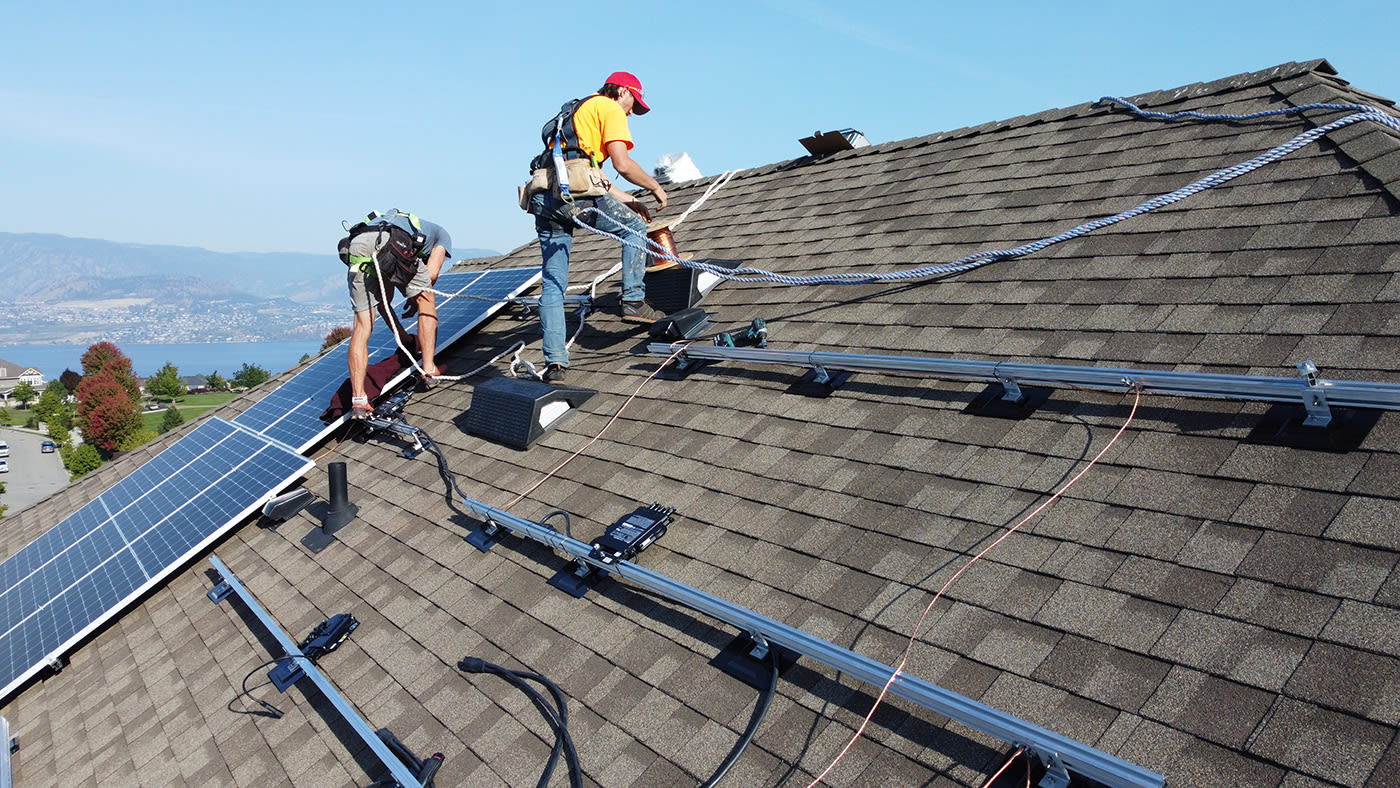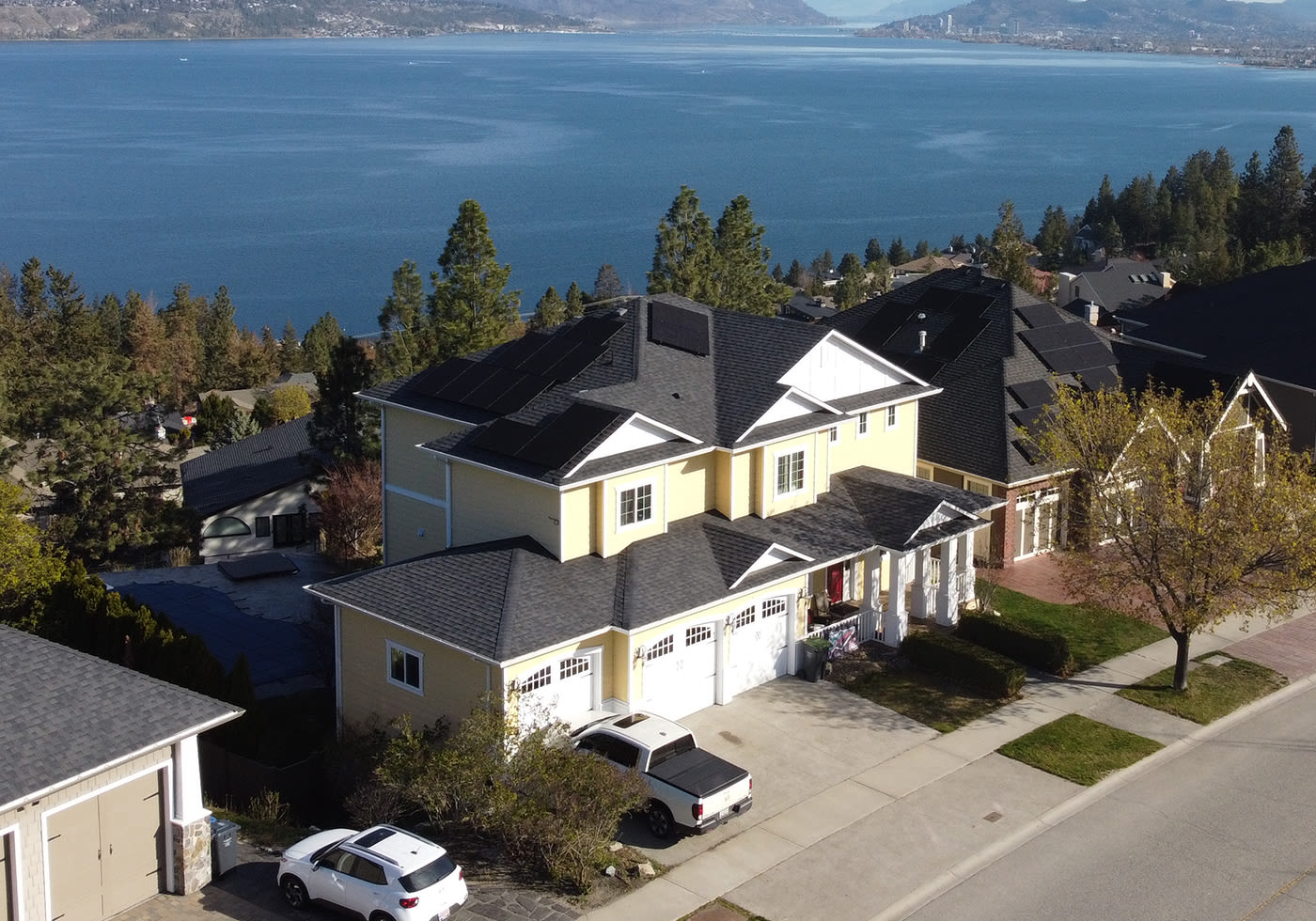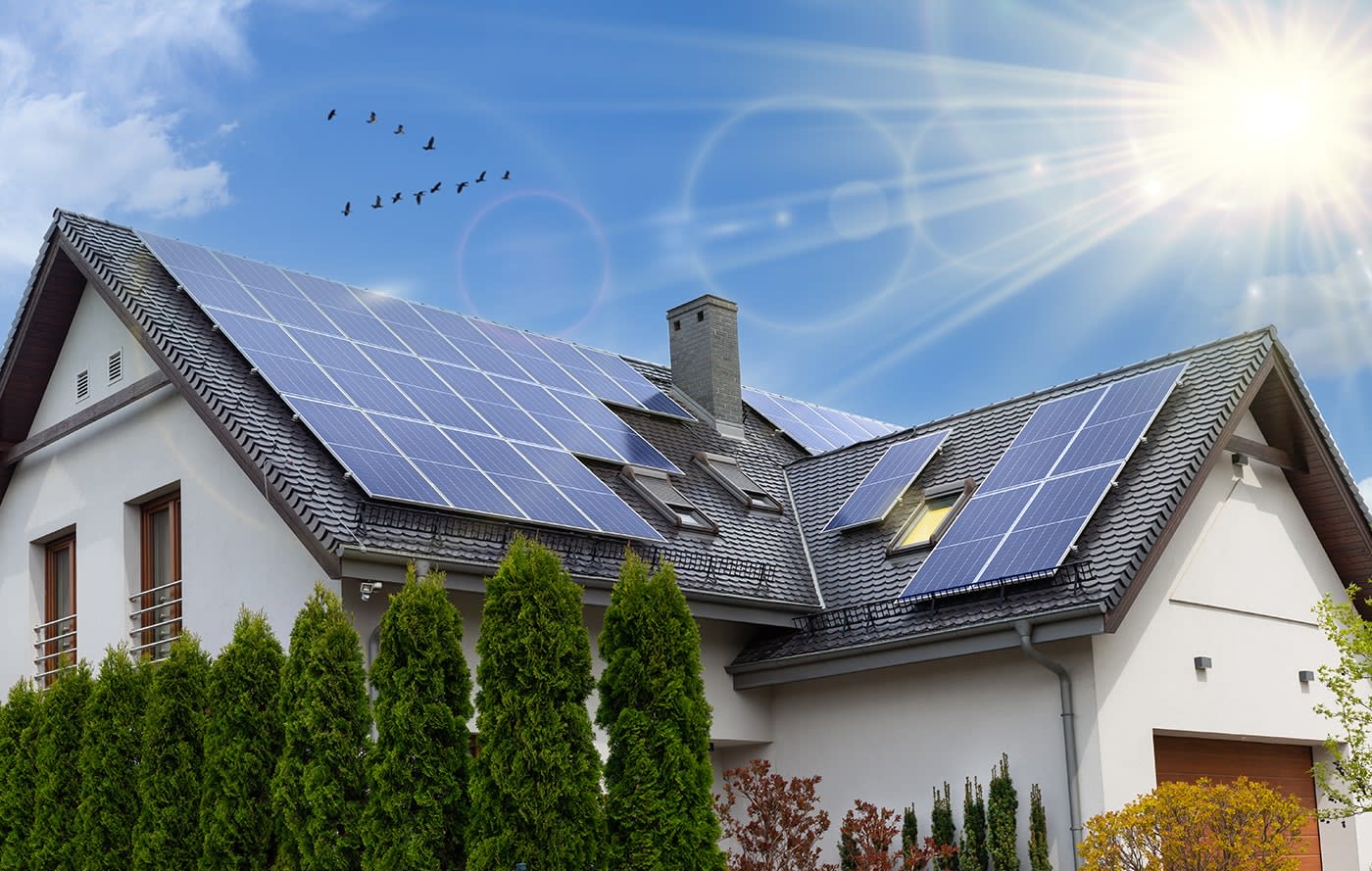We Make Solar Simple!
It feels like magic, but it's just science.
Solar energy is really fascinating because it's this perfect mix of technology, economics, and good old customer service. But it all starts with the sun, which generously beams enough energy to our planet every single hour to power our entire civilization for a whole year! And here's the cool part: with the right gear, you can tap into that sunshine and use it to power your own life. At Future West Solar, we combine all these elements to create a super easy, hassle-free experience for homeowners across BC.
TECHNOLOGY
Our high-grade solar panels, LIDAR 3D irradiance modelling for optimum placement of panels, and net metering system will have you powering your home with golden rays in no time. The best part? If one panel goes out, our micro-inverter system will keep the power generation going through the remaining live panels. Fewer interruptions = more power to you!
ECONOMICS
Going solar in BC is more accessible than ever with competitive equipment pricing and occasional incentives; we even sweeten the deal by handling all permit acquisitions. With Fortis BC and BC Hydro's utility pricing going up as high as 7% annually, every minute is precious. Going green can save you green sooner than you think.
CUSTOMER SERVICE
We perform a free sunshine analysis to assess your home eligibility; you can get the full picture before you commit. Once you do, we can customize solar to fit your life, whether it's powering an electric vehicle or future renovations. Our in-house solar panel installation team has several years of experience; enjoy service at your fingertips and an easy, sunshiny process.
How Solar Energy Works to Power Your Home
Own your own power the clean, renewable, sustainable way.

1: Sunlight & Solar Panels
When the sun shines onto solar panels, energy is absorbed by the photovoltaic (PV) cells in the panel. This energy creates electrical charges that respond to an internal electrical field in the cell, causing Direct Current (DC) electricity to flow.
2: Power Inverters
Since Direct Current power has high voltage and is unsafe for home usage, homes are commonly powered by Alternating Current (AC) electricity. Power inverters are wired in to convert DC to AC electricity that is compatible with household appliances and electrical systems.
3: Electrical Panels
Electrical panels, also known as breaker panels, distribute the converted AC power from the inverters throughout your home's electrical system. They ensure that the solar electricity is appropriately routed to power lights, appliances, and other electrical devices.
4: Your Power Meter
A power meter tracks and records both the electricity generated by solar panels and any excess energy that flows back into the grid. This provides information on energy produced or withdrawn, which can be used to credit or bill your account through a system called 'net metering'.
5: The Power Grid
The power grid is where surplus solar energy is stored. Maximum solar power is generated during the day when energy requirements are low. Being connected to the grid allows homeowners to utilize solar power at night when solar panels are inactive.
6: Mobile Controls
The power inverters that are installed come with a system where customers can monitor their solar system performance and energy production in real-time. This enables homeowners to stay informed about the system's efficiency, for convenience and potential cost-savings.
When the sun shines onto solar panels, energy is absorbed by the photovoltaic (PV) cells in the panel. This energy creates electrical charges that respond to an internal electrical field in the cell, causing Direct Current (DC) electricity to flow.
Since Direct Current power has high voltage and is unsafe for home usage, homes are commonly powered by Alternating Current (AC) electricity. Power inverters are wired in to convert DC to AC electricity that is compatible with household appliances and electrical systems.
Electrical panels, also known as breaker panels, distribute the converted AC power from the inverters throughout your home's electrical system. They ensure that the solar electricity is appropriately routed to power lights, appliances, and other electrical devices.
A power meter tracks and records both the electricity generated by solar panels and any excess energy that flows back into the grid. This provides information on energy produced or withdrawn, which can be used to credit or bill your account through a system called 'net metering'.
The power grid is where surplus solar energy is stored. Maximum solar power is generated during the day when energy requirements are low. Being connected to the grid allows homeowners to utilize solar power at night when solar panels are inactive.
The power inverters that are installed come with a system where customers can monitor their solar system performance and energy production in real-time. This enables homeowners to stay informed about the system's efficiency, for convenience and potential cost-savings.
Customer Reviews
See what our customers
are saying about
utility bills savings!
You guys took care of all the details, I went to work in the morning and came back to a fully installed solar system!
-Dan
Frqeuently Asked Questions
Solar panels contain photovoltaic cells that capture sunlight and convert it into direct current (DC) electricity. An inverter then converts the DC electricity into alternating current (AC) electricity, which can be used to power the home.
Solar panels can generate electricity in various climates as long as there is access to sunlight. However, the efficiency of solar panels may vary depending on the amount of sunlight available. Generally speaking, Western Canadian provinces generate more power in spring, summer, and fall when it's sunnier. In the winter, solar panels are less effective due to cloud cover, but you may be surprised to learn that energy is still produced on cloudy days or even when the panels are covered by snow.
YES! The most common misconception is that we need sunlight all year, the utility companies have what’s called Net Metering, which allows you to bank extra power credits you generate in the summer, to be used in the winter. And electricity flows better in the colder months so your system can produce max power with the shorter days!
Most residential solar panels are designed to last for 30-40 years, with warranties typically ranging from 20-25 years.
Solar panels require minimal maintenance, we suggest leaving the cleaning up to mother nature.



